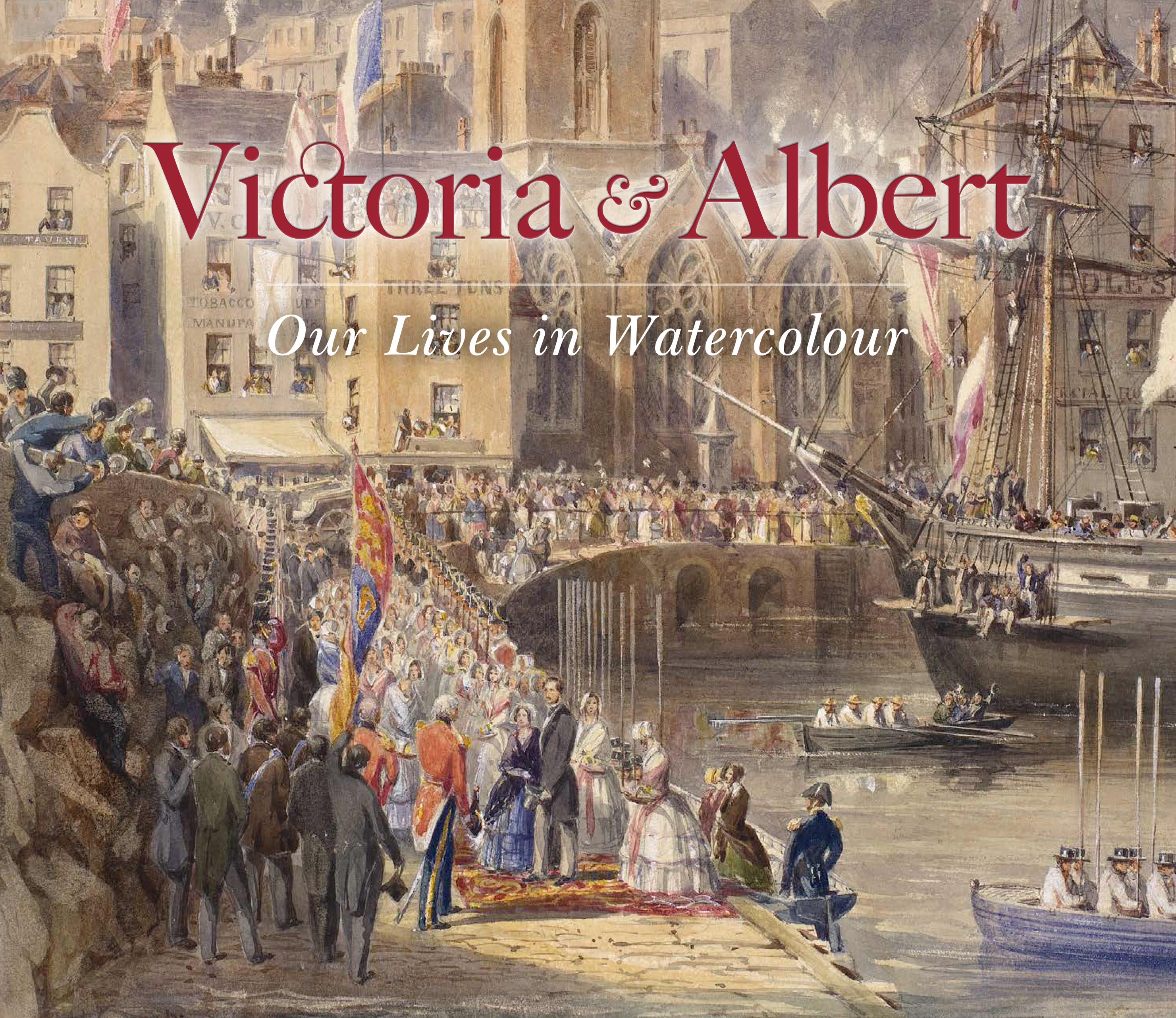
Victoria & Albert: Our Lives in Watercolour
The watercolours collected by Victoria and Albert documented their lives, private and official, together
WILLIAM WYLD (1806-89)
Manchester from Kersal Moor
dated 1852Watercolour, touches of bodycolour, with gum arabic and scratching out | 31.9 x 49.1 cm (sheet of paper) | RCIN 920223
Queen Victoria had first seen William Wyld's work in 1843 in the collection of her aunt Louise, Queen of the Belgians, choosing some of these watercolours for her own collection, and Queen Louise subsequently ordered more works from Wyld to send to Victoria. The artist was invited to stay at Balmoral in September and October 1852. In a letter to a friend, he wrote 'I am well and getting on very well with Her Majesty, who altho' a Queen is one of the most amiable women I ever spoke to, and so completely does she put you at your ease that I am no more embarrassed in talking to her than to you.'
The Queen had visited Liverpool on 9 October 1851 and Manchester over the following two days, and commissioned a watercolour of each of the cities from Wyld soon after. Manchester was then the world's greatest producer of cotton textiles, and with Salford had grown rapidly to a conurbation of almost 400,000 inhabitants by mid-century. The overcrowding and slum conditions of the workers' housing were a severe social problem, and the Queen noted in her Journal: 'The mechanics and work-people, dressed in their best, were ranged along the streets in their button-holes; both in Salford and Manchester, a very intelligent, but painfully unhealthy-looking population they all were, men as well as women'. Wyld's view of the city is however overtly romantic. The smoking chimneys serve only to accentuate the golden light of the setting sun, as in a painting by Claude, and the rustics and goats in the foreground are similarly reminiscent of the views of Italy produced in great numbers by the English watercolourists of the previous half-century.
Signed lower left W Wyld 1852
Text adapted from Victoria & Albert: Art & Love, London, 2010
This watercolour was originally mounted in Souvenir Album V. Queen Victoria and Prince Albert compiled nine Souvenir Albums during their marriage. These albums contained watercolours and drawings documenting their life together and were arranged in chronological order. The albums were dismantled in the early twentieth century and rebound in new volumes both in a different arrangement and with additional items, but a written record of their original contents and arrangement still exists.
The Queen had visited Liverpool on 9 October 1851 and Manchester over the following two days, and commissioned a watercolour of each of the cities from Wyld soon after. Manchester was then the world's greatest producer of cotton textiles, and with Salford had grown rapidly to a conurbation of almost 400,000 inhabitants by mid-century. The overcrowding and slum conditions of the workers' housing were a severe social problem, and the Queen noted in her Journal: 'The mechanics and work-people, dressed in their best, were ranged along the streets in their button-holes; both in Salford and Manchester, a very intelligent, but painfully unhealthy-looking population they all were, men as well as women'. Wyld's view of the city is however overtly romantic. The smoking chimneys serve only to accentuate the golden light of the setting sun, as in a painting by Claude, and the rustics and goats in the foreground are similarly reminiscent of the views of Italy produced in great numbers by the English watercolourists of the previous half-century.
Signed lower left W Wyld 1852
Text adapted from Victoria & Albert: Art & Love, London, 2010
This watercolour was originally mounted in Souvenir Album V. Queen Victoria and Prince Albert compiled nine Souvenir Albums during their marriage. These albums contained watercolours and drawings documenting their life together and were arranged in chronological order. The albums were dismantled in the early twentieth century and rebound in new volumes both in a different arrangement and with additional items, but a written record of their original contents and arrangement still exists.




